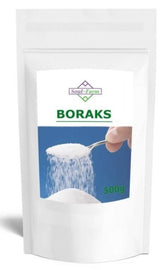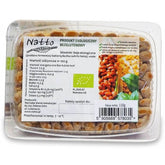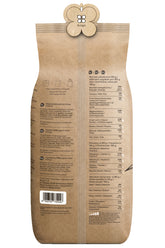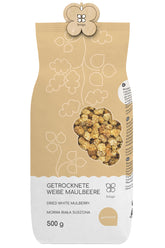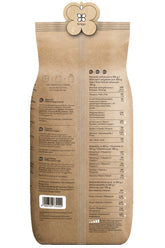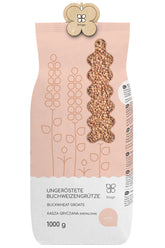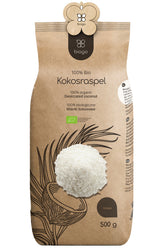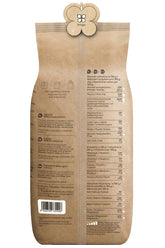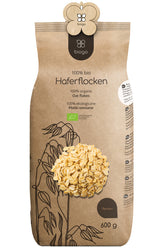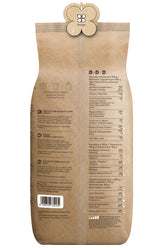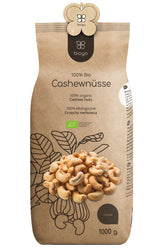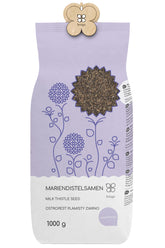Acrylic, polyamide, polyester – what clothing composition does fast fashion offer us?
Contents
- Acrylic – especially popular in the autumn/winter season
- Polyamide – not only in sportswear
- Polyester – a common component of dresses, shirts and blouses
Today, consumer awareness is growing day by day, and they are increasingly interested in the damage that aggressive textile production methods cause to nature. The phenomenon of fast fashion has been recognized, named, and defined—a mass-market business model that involves copying fashion trends promoted on runways, followed by the mass production of clothing sold at low prices, and the replacement of the collection several times a year. The goal of fast fashion is to produce as many garments as quickly and cheaply as possible, while reducing costs for the natural environment.
The popularity of relatively inexpensive clothing from chain stores has led to a significant increase in synthetic fibers made with fossil fuels. These fabrics are part of the petrochemical economy, which contributes to pollution and climate change. What's more, these garments usually end up in the trash after one season, firstly because of poor quality and secondly because new collections are introduced very quickly and garments from previous collections are deemed out of fashion and worthless. However, these aren't the only accusations against fast fashion. There's also the fact that the materials used to make clothes—all these synthetic fibers—are not only good for the environment but also for our health. So let's take a look at the most popular ones.
Acrylic – especially popular in the autumn/winter season
Acrylic (polyacrylonitrile, abbreviated PAN) is a synthetic fiber widely used in the clothing industry and also in the manufacture of carpets and rugs. Acrylic is easy to produce, which is why manufacturers use it as a substitute for natural wool, which is much cheaper. Acrylic knitwear looks like natural wool. Acrylic yarn is at least three times cheaper than natural wool yarn. Acrylic is primarily used when a lot of material is needed, for thick fabrics of all kinds, such as in the production of sweaters, hats, and scarves. Unfortunately, acrylic is so popular and ubiquitous that it's hard to avoid it when we want to buy winter sweaters from chain stores. Its main disadvantages are:
- does not provide warmth – even the thickest acrylic sweater does not protect us from frost and strong wind and the heat escapes through the acrylic hat,
- It has low hygroscopic and thermoregulating properties and is non-breathable—meaning it doesn't absorb moisture at all. So, when we sweat while walking quickly, the material doesn't absorb the sweat, which remains on our skin and causes a feeling of cold, discomfort, or an unpleasant odor.
- It is not abrasion-resistant – this means that acrylic sweaters pill quickly and look completely unsightly after just a few uses.
The solution is to avoid acrylic in clothing. It's definitely better to invest in a more expensive product made from natural materials that we won't throw away after one season and that will last much longer.
Polyamide – not only in sportswear
Polyamide, also known as nylon, is a synthetic fiber material invented in the 1930s as a replacement for expensive and delicate silk for making stockings. Today, it is mainly used in tights, swimsuits, sportswear, and for making jackets and underwear, but also in toothbrushes , shoes, carpets, guitar strings, backpacks, and special protective clothing. While polyamide does indeed work in clothing, such as swimsuits, and polyamide fibers used in ski jackets offer protection from wind, moisture, and cold, we should avoid using it in underwear or garments other than outer sportswear because:
- it quickly forms pills,
- it is stiff, offers little wearing comfort,
- is not very resistant to sunlight, fades very quickly, yellows and becomes unsightly,
- not suitable for washing at high temperatures,
- it is not biodegradable,
- electrified.
If we choose clothes that contain polyamide, we should rather choose clothes in which polyamide is only an additive that reinforces other, more noble materials.
Polyester – a common component of dresses, shirts and blouses
Polyester is a synthetic fiber made from a polymer mass based on petroleum derivatives, a non-renewable resource. Polyester production results in excessive emissions of carbon dioxide and other polluting fumes into the atmosphere. Polyester is one of the most popular and widely used fabrics in the clothing market. Polyester fabrics are inexpensive and can be easily used to make all kinds of dresses, T-shirts, blouses, and sweatshirts. Clothing manufacturers often use polyester to sew clothing, thereby reducing production costs as much as possible. However, the comfort of polyester clothing is very low, and its environmental impact is enormous. Polyester clothing:
- they do not let air through,
- They pill,
- do not absorb moisture,
- increased sweating,
- it is easily electrified and can be unpleasant to the touch,
- Not suitable for ironing.
Choosing clothing made from 100% acrylic, polyamide, or polyester is a bit like deciding to wear plastic every day. This is bad for both us and the natural environment. When these synthetic fibers are washed, microplastics end up in the groundwater, harmful to nature, animals, and ourselves. The production of such garments leaves a lot to be desired in terms of both environmental protection and ethical and moral issues. The popularity of fast fashion means that sales of clothing made with fossil fuels are steadily increasing. Clothes are thrown away after one season and pose a problem in landfills worldwide.
Let's become conscious consumers and choose clothing made from natural fabrics like organic cotton , modal, viscose, or linen. High-quality clothing that doesn't end up in the trash after one season. We also choose secondhand clothing from secondhand stores to give it a second life and prevent it from ending up in ever-growing landfills.
THE PUBLISHER'S CHOICE
Almonds 1 kg BIOGO
- €11,69
€13,75- €11,69
- Unit price
- / per
Walnuts 800 g BIOGO
- €8,65
€10,18- €8,65
- Unit price
- / per
Dried organic mango 400 g BIOGO
- €10,99
- €10,99
- Unit price
- / per
Dried White Mulberries 500 g ORGANIC
- €5,84
€6,87- €5,84
- Unit price
- / per
Dried organic figs 800 g BIOGO
- €30,12
- €30,12
- Unit price
- / per
Unpeeled buckwheat groats 1 kg BIOGO
- €2,81
€3,31- €2,81
- Unit price
- / per
Organic coconut flakes 500 g BIOGO
- €10,07
- €10,07
- Unit price
- / per
Organic oat flakes 600 g BIOGO
- €3,77
- €3,77
- Unit price
- / per
Organic cashew nuts 1 kg BIOGO
- €19,99
- €19,99
- Unit price
- / per
Milk thistle seeds 1 kg BIOGO
- €3,99
- €3,99
- Unit price
- / per






